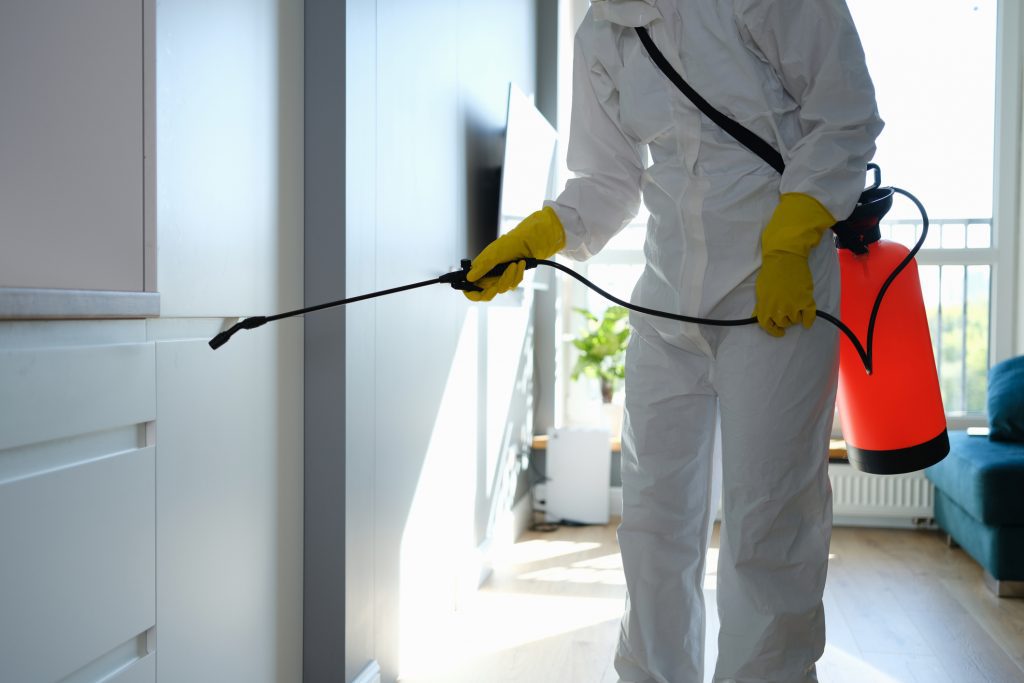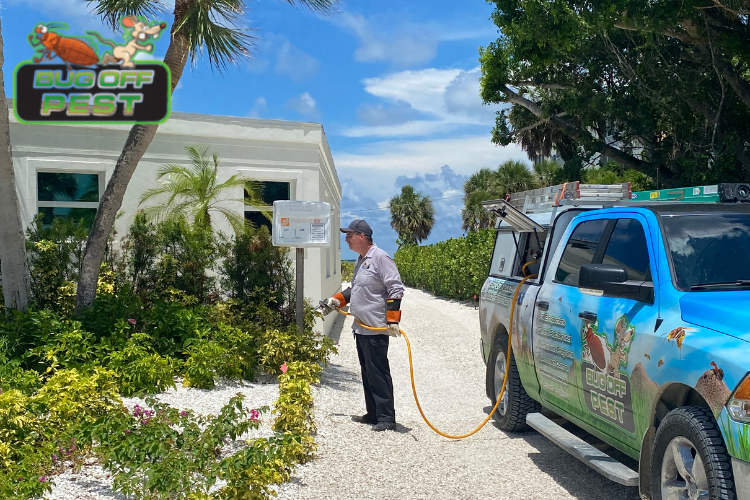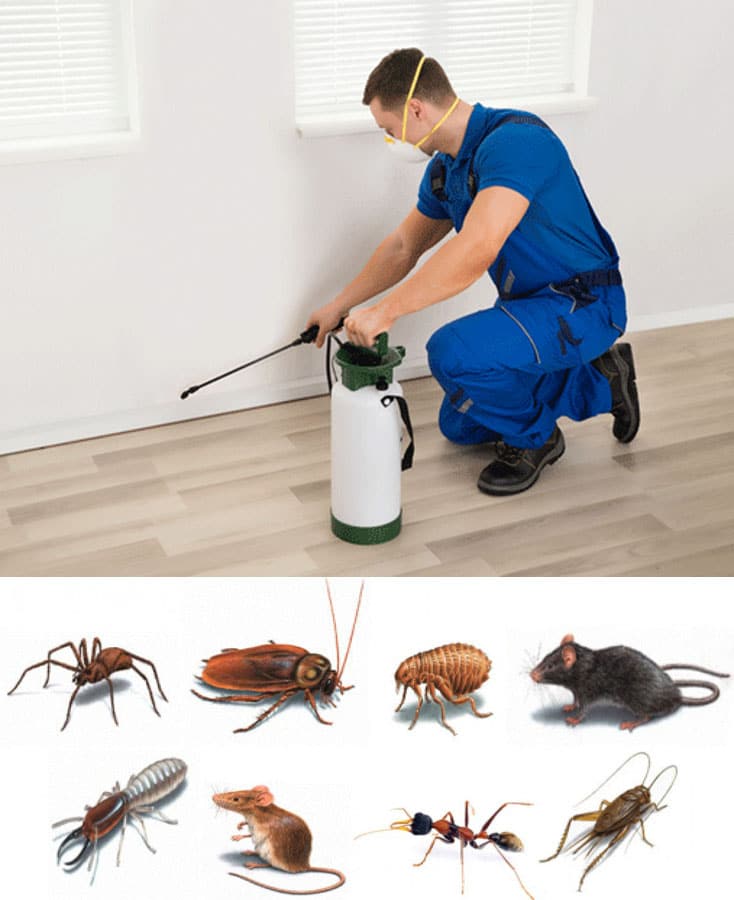Enjoy professional Pest Control in Port Charlotte to eliminate infestations now.
Enjoy professional Pest Control in Port Charlotte to eliminate infestations now.
Blog Article
Checking Out Cutting-edge Techniques and Products for Efficient Bug Control
The landscape of bug control is progressing, noted by the introduction of cutting-edge strategies and items created to improve efficiency and sustainability. From clever traps equipped with innovative surveillance systems to organic techniques that use natural predators, these innovations offer a standard change in how we come close to pest monitoring.
Smart Traps and Keeping Track Of Systems
How can contemporary innovation enhance parasite monitoring? One substantial advancement is the advancement of smart catches and checking systems, which provide real-time data and analytics for effective pest control. These systems make use of sensors and cordless innovation to discover bug activity, informing home supervisors and parasite control professionals to invasions prior to they rise.
Smart catches are equipped with functions such as lure stations that attract parasites and catch them effectively. These catches can be monitored remotely, permitting prompt interventions and decreasing the requirement for substantial chemical applications. Moreover, the combination of device discovering formulas enables these systems to differentiate between target pests and non-target types, improving the precision of pest control procedures.
Furthermore, the information collected from clever catches can be analyzed to identify patterns in pest habits and ecological variables adding to infestations (Pest Control in Port Charlotte). This info is invaluable for developing targeted insect management methods customized to certain environments. By accepting clever traps and keeping an eye on systems, parasite control specialists can enhance their functional efficiency and lower the eco-friendly influence of parasite management, ultimately causing much safer and much more sustainable practices in the sector
Organic Parasite Control Approaches
Using natural killers and bloodsuckers, biological parasite control approaches offer an ecologically pleasant alternative to chemical treatments. This technique entails the introduction or enhancement of specific microorganisms that can normally manage insect populations, consequently minimizing dependence on artificial pesticides. Usual examples consist of the usage of ladybugs to regulate aphid invasions and parasitical wasps to target caterpillars.

Organic control can be categorized right into three primary approaches: classic, augmentative, and preservation. Classical organic control includes importing natural adversaries from the bug's indigenous habitat, while augmentative control involves boosting the populace of existing natural opponents via releases. Conservation strategies concentrate on creating conditions that sustain these beneficial microorganisms in the ecosystem.
It frequently calls for a detailed evaluation of pest characteristics and the life cycles of both the insects and their natural adversaries. As recognition of ecological issues expands, organic insect control techniques are progressively acknowledged for their sustainable function in incorporated bug monitoring programs.
Eco-Friendly Chemical Alternatives
Environment-friendly chemical alternatives give a viable option for parasite administration that minimizes ecological impact while effectively regulating bug populaces. These choices are originated from all-natural sources and are meticulously developed to target particular pests without hurting useful organisms, making them a vital element of sustainable pest control approaches.
Amongst one of the most reliable environment-friendly options are plant-based insecticides, such as neem oil and pyrethrin, which are derived from the seeds and flowers of different plants. These compounds interfere with the life cycles of bugs, decreasing their populations without the hazardous impacts connected with traditional pesticides - Pest Control in Port Charlotte. In addition, essential oils like pepper mint and clove oil exhibit repellent buildings, further improving their energy in pest management

Additionally, green chemical choices typically break down faster in the atmosphere, reducing the risk of dirt and water contamination. This characteristic aligns with the raising consumer demand for sustainable methods in agriculture and urban pest control. As research study remains to development, the growth of ingenious environmentally friendly solutions will better enhance efficacy and expand application areas, making it possible for pest administration experts to adopt greener, more accountable approaches in their techniques while safeguarding human wellness and the environment.
Pheromone Disturbance Methods
Another innovative technique in lasting bug administration is the usage of pheromone disruption methods. These techniques exploit the natural chemical signals, or scents, that bugs utilize for communication, especially in mating habits. By interrupting these signals, pest populaces can be properly handled without considering damaging chemicals.
Scent catches are generally employed in this approach. These traps make use of synthetic variations of insect scents to lure male pests, thus decreasing their capability to situate females and replicate. With time, this can lead to a substantial decrease in insect populations. In addition, the release of repellent scents can create confusion amongst pests, additionally preventing their mating processes - Pest Control in Port Charlotte.

Integrated Parasite Monitoring Strategies
Reliable bug control usually needs a detailed technique, and Integrated Bug Monitoring (IPM) techniques give a Discover More Here framework for achieving this goal. IPM incorporates different administration practices to decrease bug populations while decreasing reliance on chemical pesticides. This multifaceted approach starts with complete tracking and identification of pests, permitting targeted treatments based on specific bug pressures.
Social methods, such as crop rotation and hygiene, play a crucial role in protecting against bug establishment. Biological controls, consisting this article of natural killers and parasitoids, are employed to maintain parasite populations at workable levels. When essential, careful chemical therapies are applied, emphasizing reduced poisoning to non-target species and the atmosphere.
By using this alternative method, IPM not just boosts parasite control efficiency but also contributes to long-term ecological balance. Ultimately, Integrated Pest Management represents a forward-thinking option that aligns farming performance with ecological stewardship, making it crucial in modern bug control methods.

Final Thought
Finally, the integration of cutting-edge strategies and products for efficient pest control stands for a significant advancement in sustainable insect monitoring. Smart catches and keeping track of systems, biological insect control techniques, environment-friendly chemical options, and pheromone disturbance techniques collectively improve click site the effectiveness of insect management methods. By embracing these methods, the reliance on standard chemicals can be minimized, advertising environmental health and wellness while making certain effective pest control. Proceeded study and advancement in these areas will certainly additionally boost bug administration practices.
Report this page